Key FreeCAD Features
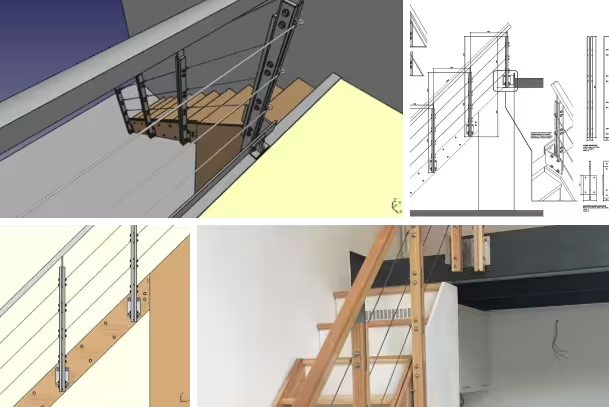
Made to build for the real world
FreeCAD is made primarily to design objects for the real world. Everything you do in FreeCAD uses real-world units, be it microns, kilometers, inches or feet, or even any combination of units. FreeCAD offers tools to produce, export and edit solid, full-precision models, export them for 3D printing or CNC machining, create 2D drawings and views of your models, perform analyses such as Finite Element Analyses, or export model data such as quantities or bills of materials.
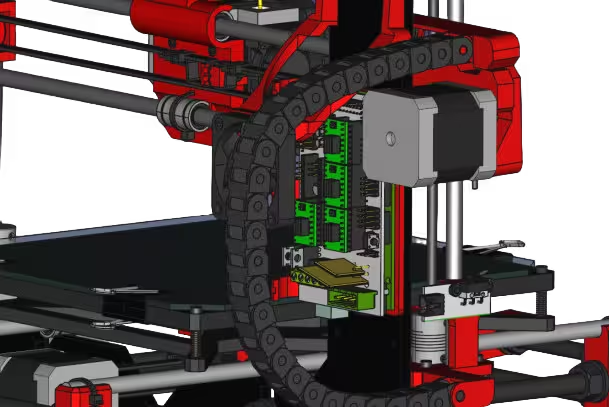
A powerful solid-based geometry kernel
FreeCAD features an advanced geometry engine based on Open CASCADE Technology. It supports solids, Boundary Representation (BRep) objects, and Non-uniform rational basis spline (NURBS) curves and surfaces, and offers a wide range of tools to create and modify these objects, including complex Boolean operations, fillets, shape cleaning and much more.
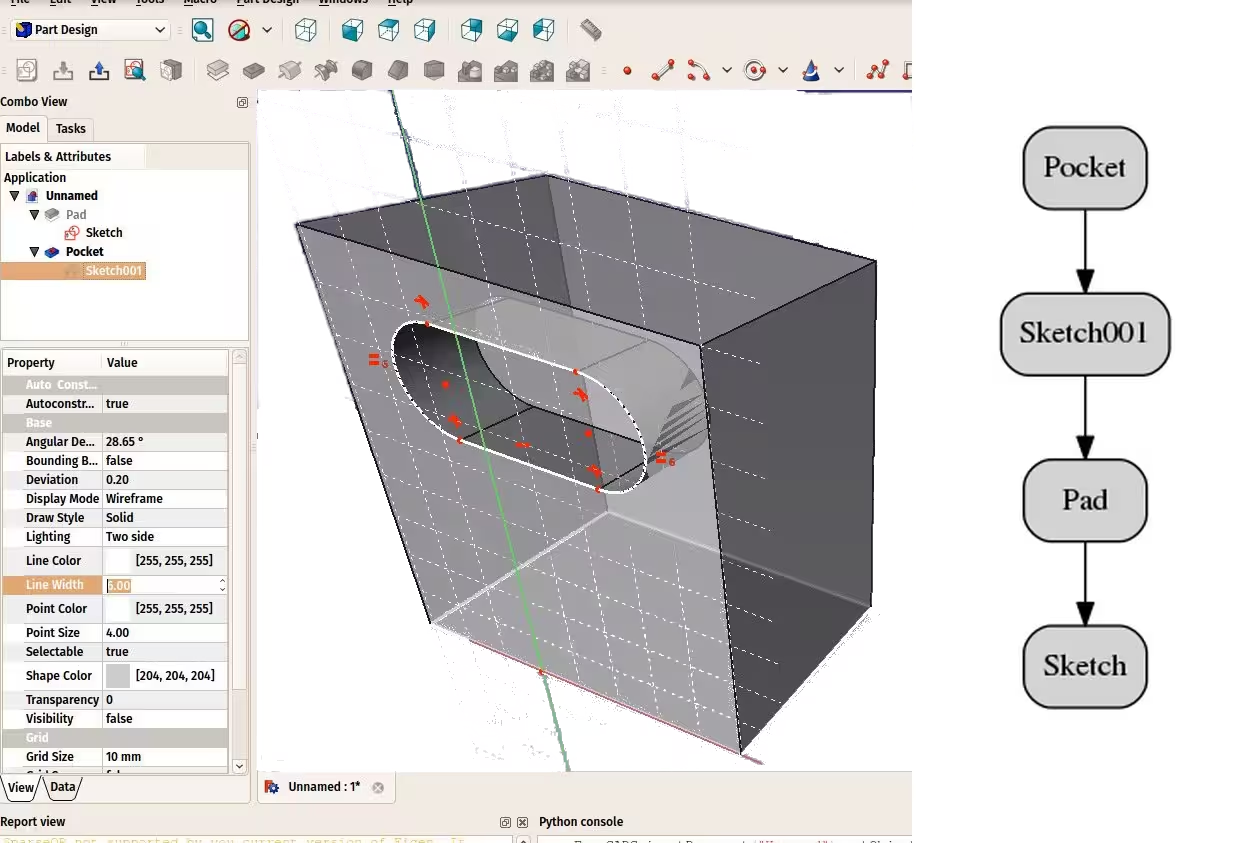
A wi(l)dly parametric environment
All FreeCAD objects are natively parametric, meaning their shape can be based on properties such as numeric values, texts, on/off buttons, or even other objects. All shape changes are recalculated on demand, recorded by an undo/redo stack, and allow to maintain a precise modelling history. Properties of one object can drive the value of properties of other objects, allowing complex, custom parametric chains that could only exist in your wildest dreams. New parametric objects are easy to code.
Assembly solutions for every need
FreeCAD offers since long several great community-made add-on assembly workbenches that use different solvers and even solver-free workflows to assemble the parts you create. With FreeCAD 1.0, a new built-in assembly workbench is also included, based on the Ondsel Solver. This workbench allows to define 3D constraints between parts, assemble the different components of a model, and animate everything.
Also for architects
Until version 1.0, FreeCAD had a built-in Arch workbench and an external BIM workbench added on top of that. With version 1.0, both of them have merged and now we have a built-in BIM workbench. Now you can do your building and construction related projects right out of the box.
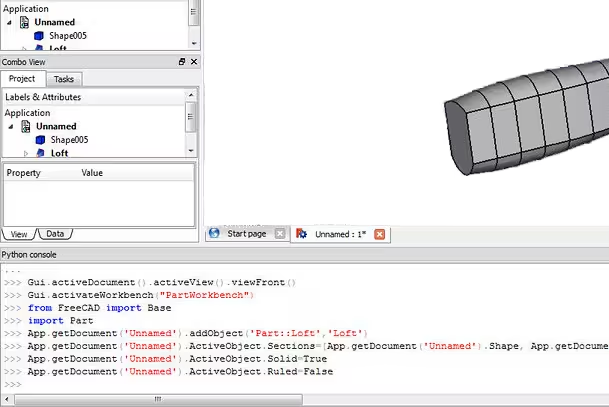
Python everywhere
While the FreeCAD core functionality is coded in C++ for robustness and performance, large parts of the external layers, workbenches and almost all the communication between the core and the user interface is coded in Python, a flexible, user-friendly, easy to learn programming language. From Python code, you are able to do just anything in FreeCAD, from simple one-line commands in the integrated Python console to recording macros, coding your own tools up to full custom workbenches.
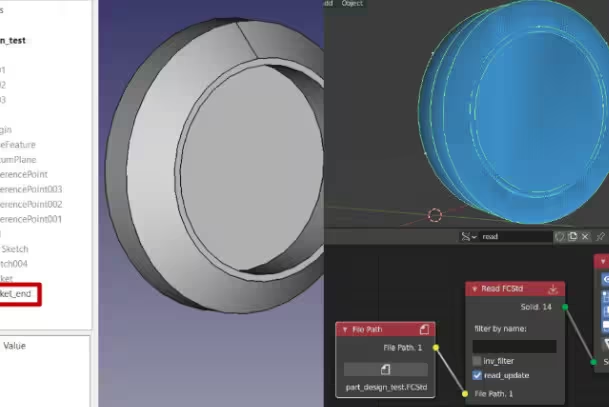
File formats frenzy
FreeCAD allows you to import and export models and many other kinds of data from your models such as analyses results or quantities data to dozens of different file formats such as STEP, IGES, OBJ, STL, DWG, DXF, SVG, SHP, DAE, IFC or OFF, NASTRAN, VRML, OpenSCAD CSG and many more, in addition to FreeCAD's native FCStd file format. Add-on workbenches can also add more file formats.
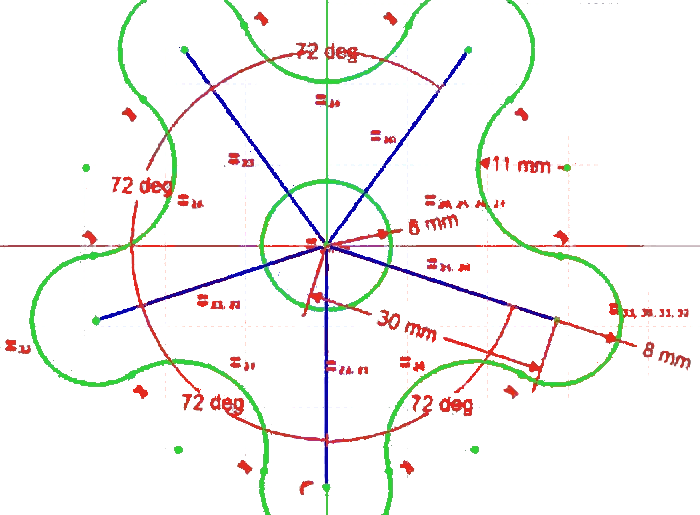
A parametric constraints-based 2D sketcher
FreeCAD features a state-of-the-art Sketcher with integrated constraint-solver, allowing you to sketch geometry-constrained 2D shapes. Sketches are the main building block of FreeCAD, and the constrained 2D shapes built with it may then be used as a base to build other objects throughout FreeCAD, be it either with the dedicated Part Design workbench or any other workbench.
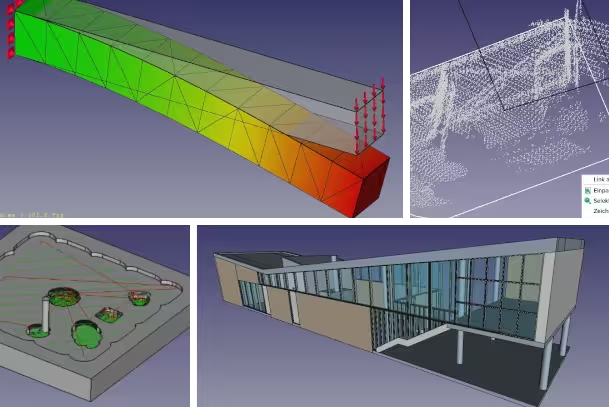
A large (and growing) multi-specialty ecosystem
FreeCAD offers dedicated workbenches for a variety of purposes such as CSG modeling, simple 2D CAD drafting, NURBS surfaces, architectural or BIM modeling, 3D printing, CAM and CNC, point clouds, working with OpenSCAD files, designing industrial robot trajectories, doing Finite Element Analyses, and much more. FreeCAD also provides easy tools to install and manage add-on workbenches and macros developed by the users community.
Learn more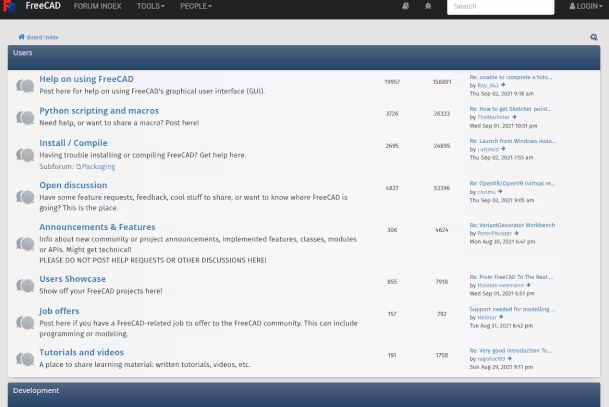
Developed by a community
FreeCAD is made for everybody, by everybody. It is developed and maintained by a community of developers, users, moderators, translators, all united by their wish make FreeCAD a free and powerful tool. There is no commercial aim behind decisions being taken, no urge to make you upgrade your version of FreeCAD or to corner you into a specific workflow or ecosystem. FreeCAD and the files and data you produce with FreeCAD are truly yours, forever.
Release notes
Find here the release notes for current and previous FreeCAD versions. Release notes describe what's new in each release:
- Release 1.0 - November 2024 (current stable release)
- Release 0.21 - August 2023
- Release 0.20 - June 2022
- Release 0.19 - March 2021
- Release 0.18 - March 2019
- Release 0.17 - April 2018
- Release 0.16 - April 2016
- Release 0.15 - March 2015
- Release 0.14 - March 2014
- Release 0.13 - January 2013
- Release 0.12 - December 2011
- Release 0.11 - March 2011
Follow the official FreeCAD channels for fresh news: